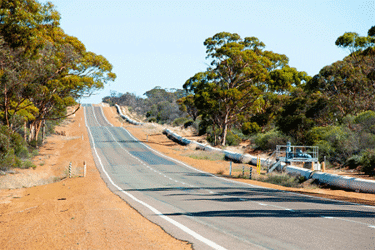River Diversion Could Be A Solution To Western Drought, But Is It Realistic?


To many, it may seem that there is an easy solution to growing drought in the Western U.S.: Why not just redirect water from where it is prevalent to where it is most needed?
Last year, for instance, the idea of a pipeline for transporting water from the Mississippi River to Lake Powell gained significant traction. And legislators have seriously explored the idea as well.
“Over the years, a proposed solution (to Western drought) has come up again and again: large-scale river diversions, including pumping Mississippi River water to the parched west,” the Associated Press reported. “Most recently, the Arizona state legislature passed a measure in 2021 urging Congress to investigate pumping flood water from the Mississippi River to the Colorado River to bolster its flow.”
And it should be no surprise that consumers and lawmakers alike are desperate to think outside of the box when it comes to water scarcity solutions. With virtually all of the Southwest experiencing drought, some communities face the prospect of losing drinking water altogether and state negotiations around how to divide the dwindling resources are growing acrimonious.
But even as the idea of diverting water across the country once again gains momentum, the logistical costs remain challenging to overcome.
“The studies that have already been done by the Bureau of Reclamation and by Western Illinois University show that diverting water from the Mississippi is technically possible, but it would cost $1,700 per acre-foot of water and require a pipe that is 88-feet wide running from the river to the Front Range,” per The Daily Sentinel. “It would also take decades to build.”
With its feasibility verified and drought growing more severe throughout the country, it may be only a matter of time until those logistical costs can be justified by the growing need for more water resources.
“The idea of a pipeline transecting the continent is not a new idea. But, as water scarcity in the West gets more desperate, the hurdles could be overcome one day,” according to AP. “In the meantime, researchers encourage more feasible and sustainable options, including better water conservation, water recycling, and less agricultural reliance … Those will require sacrifices, no doubt — but not as many as building a giant pipeline would require, experts said.”
To read more about how drinking water utilities are evolving to cope with drought, visit Water Online’s Water Scarcity Solutions Center.
